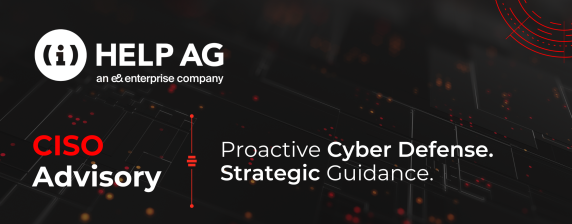Threat Intel Powered Protection

By Ahmed AlJasmi
Threat Intelligence and Digital Risk Protection Lead, Help AG
The year 2023 has witnessed an unprecedented surge in cybersecurity threats, with adversaries employing increasingly sophisticated tactics to compromise organizations across various sectors. Help AG Cyber Threat Intelligence (CTI) Team’s mission is to stay ahead of these threats, providing timely advisories and intelligence updates to our clients.
Key Trends and Notable Threats
One of the most notable trends in 2023 has been the rise in targeted attacks, particularly in the Middle East, where Advanced Persistent Threats (APTs) like APT33, Charming Kitten, and MuddyWater have been active, targeting sectors such as government, finance, and telecoms. These groups, often operating under nation-state sponsorship, leverage geopolitical tensions to craft compelling lures and execute their campaigns.
Zero-day vulnerabilities have become a significant threat vector, with multiple advisories highlighting the active exploitation of flaws in popular software platforms such as Microsoft, Google Chrome, and Apple products. This underscores the critical need for timely patch management and robust threat intelligence to mitigate risks effectively.
Ransomware and Distributed Denial of Service (DDoS) attacks have dominated the threat landscape. Ransomware groups like Cl0p, Monti, and BlackHunt employ double extortion tactics, encrypting data and threatening to leak it to pressure victims into paying ransoms. Meanwhile, DDoS attacks, particularly those launched by groups like Anonymous Sudan and Killnet, have targeted various sectors, causing significant operational disruptions.
Threat actors continually evolve their tactics, techniques, and procedures (TTPs) to bypass traditional defenses, using techniques such as DLL side-loading, process injection, and the abuse of legitimate tools like PowerShell and Windows Management Instrumentation (WMI). These sophisticated methods allow attackers to maintain persistence, evade detection, and escalate privileges within compromised systems.
Many cyber attacks in 2023 have been driven by geopolitical motivations. Adversaries leverage regional tensions to craft lures and campaigns that resonate with their targets. For example, the Earth Bogle campaign targeted Middle Eastern organizations using geopolitical themes, while Charming Kitten focused on organizations involved in sensitive sectors like government and defense.
Mitigation Strategies
Mitigating Ransomware Risks
To mitigate ransomware risks, organizations should implement robust backup strategies, regularly update and patch systems, and invest in advanced threat detection and response capabilities.
Continuous Vulnerability Management
Continuous vulnerability management is essential. Organizations should utilize threat intelligence feeds to stay updated on emerging threats and ensure rapid patch deployment processes are in place. Additionally, considering virtual patching solutions can provide protection against exploits.
Countering State-Sponsored APT Groups
To counter state-sponsored APT groups, organizations in critical sectors should adopt a zero-trust architecture, conduct regular threat hunting, and participate in threat intelligence sharing programs.
Additional Security Measures
Implementing multi-factor authentication and utilizing network segmentation can also significantly reduce the risk of compromise.
Looking to the Future
Increasing Use of AI and Automation
Looking to the future, adversaries are expected to increasingly use AI and automation to enhance their attack capabilities, making AI-driven phishing and social engineering attacks more prevalent and sophisticated.
Rise in Supply Chain Attacks
Supply chain attacks will also become more frequent, with attackers targeting software providers and third-party services to compromise their customers.
Cloud Vulnerabilities
As more organizations migrate to the cloud, attackers will focus on exploiting misconfigurations and vulnerabilities in cloud environments.
Threats to IoT and OT Deployments
The rise in IoT and Operational Technology (OT) deployments will attract more attacks, aiming to disrupt critical infrastructure and industrial operations.
Countering Future Threats
Leveraging AI for Defense
To counter these future threats, organizations should leverage AI for threat detection and response.
Enhancing Third-Party Security
Implement stringent security measures for third-party vendors.
Adopting Comprehensive Cloud Security
Adopt comprehensive cloud security solutions to safeguard cloud environments.
Securing IoT Devices
Secure IoT devices with strong authentication and encryption mechanisms.
The Evolving Cybersecurity Landscape & Help AG’s Commitment
The cybersecurity landscape in 2023 has been marked by evolving threats and sophisticated attacks, necessitating a robust and adaptive cybersecurity strategy.
Help AG’s CTI Team underscores the importance of staying ahead of adversaries. Monitoring global cyber threats, analyzing attack patterns, and providing actionable intelligence to our clients have been critical in mitigating risks. The insights gained from threat intelligence not only help in understanding current threats but also in predicting future attack trends.
The Importance of Collaboration
One of the key lessons from 2023 is the need for collaboration, as sharing threat intelligence across organizations and sectors can significantly enhance our collective defense against cyber threats.
Additionally, investing in advanced technologies, such as AI and machine learning, can provide a strategic advantage in detecting and responding to sophisticated attacks.
The dynamic nature of the cybersecurity landscape requires constant vigilance and adaptability. By leveraging threat intelligence and adopting proactive security measures, organizations can navigate the complexities of the modern threat environment and safeguard their critical assets.
Together, we can build a more secure future.






